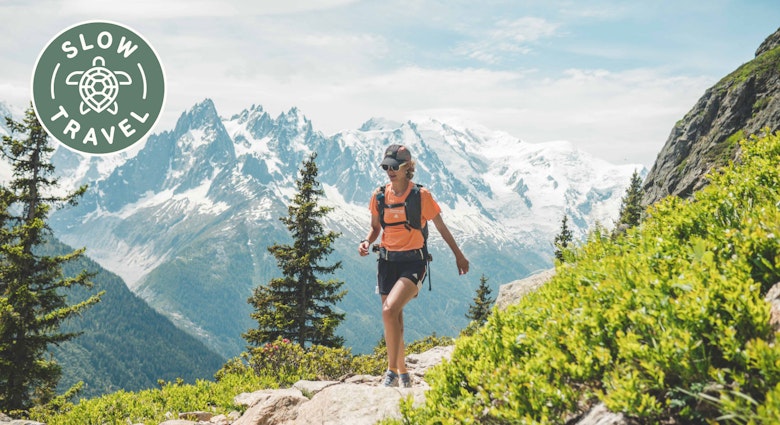

A hiker explores the Glyder Fach high up on Snowdonia mountain range in Wales © Sebastien Coell/Shutterstock
Walkers may soon be charged to climb Wales’ highest mountain. A local councilor has claimed a fee as low as £1 per person would help pay for the upkeep and preservation of the peak, which is visited by half a million people a year.
Snowdonia National Park, which contains Snowdon alongside other popular mountains such as Tryfan and Glyder Fach, was closed in March as part of Wales’ coronavirus lockdown. Since it reopened on July 6, visitors have flocked to the mountain. Warnings have been issued for illegal camping and car parks have been at capacity, with illegally parked vehicles being towed away. Snowdonia also faces ongoing problems with soil erosion and litter.

Gwynedd councilor Gwyn Daniels said the measure would raise money for path maintenance and ease congestion. “This would not only raise revenue for both the council and the park,” he said, “but could also contribute to building new car parks, therefore lessening the number of vehicles illegally parking on the roads on certain days… We’re not asking for gold nuggets, but then again we deserve more than peanuts.”
Daniels added that other countries such as Switzerland, Canada and New Zealand charge for entry to national parks. In the UK, while parking fees may be levied, entry to all national parks is currently free. The UK’s “right to roam” enshrines public access to areas including mountains, moors, heaths and downs, even where these are privately owned.

Yet the hugely popular Snowdonia, at 1085m the highest point in Wales and England, has long been a mountain apart. Yr Wyddfa (“the tomb”) in Welsh, it boasts views across to Ireland on a clear day, and is the mythical resting place of a giant slain by King Arthur. Numerous paths snake up its rocky slopes, including vertiginous ridge walks and easier tracks, and a tourist train climbs to just below the summit. Its fame means it can get busy, and its facilities need regular maintenance – costing around £250,000 per year.
The charge would be levied on those accessing the summit via train or on foot, and any fee would face legal obstacles due to the right to roam. The measure will be discussed further at a council meeting in October.
Lockdowns are easing globally as the planet adjusts to a new normal. Find out how COVID-19 is changing travel.
You might also like:
Virtually hike the Appalachian Trail using this app
Best foot forward: hiking your way around the world
Explore related stories





 HikingHiked the Camino? Here are 7 pilgrimages to consider for your next challenge
HikingHiked the Camino? Here are 7 pilgrimages to consider for your next challengeAug 23, 2024 • 9 min read





